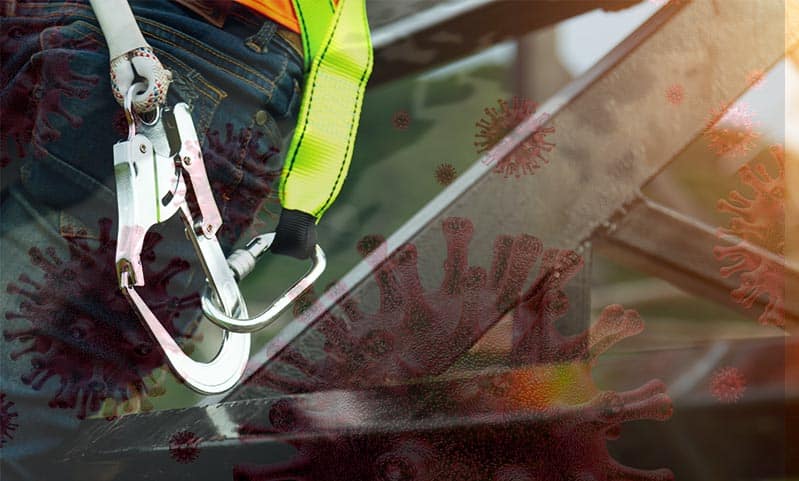Mostly because of the COVID-19 pandemic, worker safety has consistently been in the news during 2020.
For example, in late August, the United Federation of Teachers almost went on strike over coronavirus health concerns. Coronavirus is just the latest in a string of deadly occupational diseases which often affect area workers.
Other issues which are even more serious, such as emergency responders who must inhale toxic smoke, have existed for years.
Additionally, for both blue collar and white collar workers, trauma injuries, like falls, are a constant threat as well.
All workers, employees and independent contractors alike, have the right to a hazard-free workplace.
A New York personal injury attorney helps guarantee that right. These financial rights include the right to fair compensation for your serious injuries.
The legal rights include the right to fair treatment by companies who too often put profits before people.
Everyday Physical Safety
Since trauma injuries and occupational diseases threaten New York workers, employers have a legal duty to protect their workers against both these things.
Fishing and construction, two industries that employ thousands of Mid-Atlantic workers, are among the most dangerous occupations in the world, in terms of trauma injuries.
When injuries occur on fishing boats, these victims are often many, many miles away from the nearest trauma center.
By the time they arrive there, their conditions have deteriorated significantly.
The Jones Act usually applies to fishing boat injuries, whether the vessel was docked or at sea.
In general, the Jones Act provides compensation for economic losses, such as medical bills, and noneconomic losses, such as pain and suffering.
These victims normally do not have to prove fault or negligence to obtain this compensation.
As for construction injuries, the Occupational Safety and Health Administration estimates that the Fatal Four (falls, caught between, struck by, and electrocution) account for about half the fatal workplace injuries in this sector.
Many other workers in many other industries face these same hazards. And, these hazards are not limited to trauma injuries.
Hearing loss is the most common occupational disease in New York.
Prolonged exposure to sounds as low as 85 decibels, which is essentially a busy street corner, could cause permanent hearing loss.
Other examples include toxic exposure, joint pain, and vision impairment.
Workers’ compensation benefits are usually available in these situations.
In some cases, such as an uninsured employer, additional compensation might be available, if victim/plaintiffs establish negligence.
Special COVID-19 Rules
Now that we are past the early stages of the coronavirus pandemic, the workplace safety rules have become much more well-established.
At first, no one was sure what to do, so the standard of care was difficult to determine. Now, this standard usually involves the following three items:
- Health Screening: This standard varies from frequent COVID-19 negative tests to temperature and symptoms checks. However, all employers have a duty to perform health screenings. Employers have rights in this area as well. More on that below.
- Masking/Social Distancing: Other than voluntarily remaining home, especially when a person is sick, masking and social distancing might be the most effective ways to slow the spread of COVID-19. Therefore, clear policies and strict enforcement in both these areas is essential for worker safety.
- Disinfecting: Germs, like coronavirus, live on surfaces, like desks and human hands. So, employers must take care of frequently-touched surfaces and provide copious amounts of hand sanitizer for their workers.
As mentioned, employers have rights in this area as well.
Generally, specific questions about a worker’s health are illegal.
But during this pandemic, employers can legally ask questions about a person’s health and habits, especially if the worker displays flu-like symptoms.
In some cases, employers can force these individuals to leave the premises and remain away until they are healthy.
Many workers are independent contractors.
Workers’ compensation usually does not apply to these victims. However, if the workplace failed to measure up to the standard of care in terms of worker safety, compensation might still be available.
These same principles also apply to customers and other invited guests.
Store owners and other employers have the same legal duty to non-employees as they have to employees. Uninvited guests are entitled to a lesser amount of protection, at least in most cases.
Worker safety is critical to our overall health and our economy.
For a free consultation with an experienced New York personal injury lawyer, contact Napoli Shkolnik PLLC. Attorneys can connect victims with doctors, even if they have no insurance or money.
